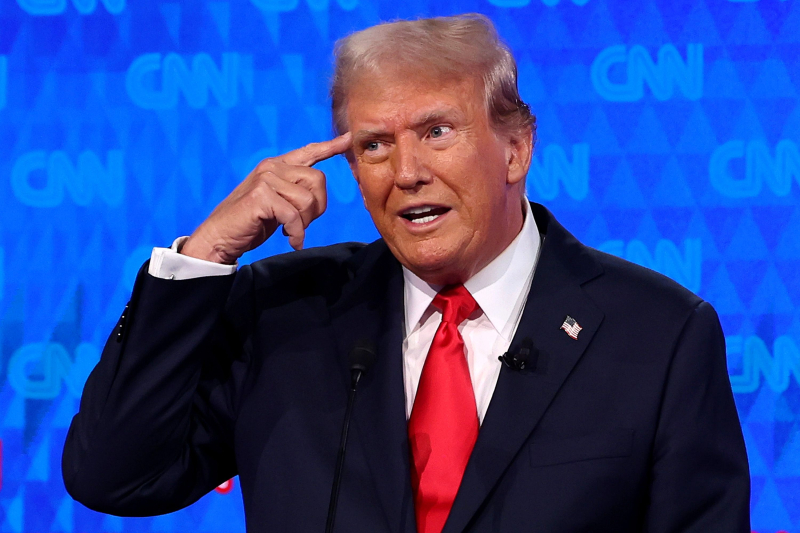“The consequences will be terrible”: Trump may limit intelligence sharing with NATO Anzhelika Baybak Donald Trump/Getty Images Donald Trump, if he wins the US presidential election, may limit the exchange of intelligence data with NATO countries. This will have terrible consequences for Ukraine, because the countries of the Alliance will not be able to receive information that allows them to resist Russian aggression. About this on the terms Politico's interlocutors spoke anonymously. Sources say Trump advisers have already told US allies to cut back on intelligence sharing.Trump plans to cut back on intelligence sharing< /h2>
Donald Trump's advisers say the new US president plans to reduce intelligence sharing if he wins the election, according to three European officials and a senior NATO official. They say this will be part of a broader plan to reduce US support and cooperation with the Alliance.
Therefore, reducing intelligence sharing “could have dire consequences for security, and especially for Ukraine.” Officials say this will significantly impact the ability to resist Russian aggression, and also reduces Europe's ability to resist a Russian invasion, especially if Vladimir Putin decides to attack other countries.
It was American intelligence that helped convince many NATO countries that Putin intended to invade Ukraine… Some countries did not believe that Russia had the capabilities to conduct a successful military campaign, one of the officials shared. < /p>
At the same time, a Trump campaign spokesman declined to comment directly on these statements, instead citing a statement on the TruthSocial website that the former US president would “restore peace, American strength and deterrence to world stage”.
The topic of limiting the exchange of intelligence under Trump's presidency was also discussed at the NATO summit in Washington.
At the same time, Joe Biden has expanded the amount of intelligence information that members of the Alliance receive . For now, officials do not know whether Trump is considering returning to the previous level of intelligence sharing, or even reducing it further.
Russia is now implementing actual arson and sabotage, plans assassinations on the territory of Alliance member countries, trying to undermine support for Ukraine among our domestic population… The United States has increased intelligence sharing within NATO to help respond to these sabotage campaigns. And this has a real impact,” the NATO representative emphasized.
The media recalled that the United States has always shared intelligence information with the Alliance to help countries prepare for potential danger – a terrorist attack or military threat. During Trump's first presidency, Alliance member countries received intelligence, but it did not go beyond what was required and accepted.
At the same time, during the Biden presidency, the exchange intelligence has increased significantly, as it has reached a new level of responsibility. Thus, the US presidential administration has developed a strategy to strengthen intelligence collection about Russia and broadly share intelligence with its allies around the world. The White House now shares sensitive intelligence with allies in cables, diplomatic conversations around the world, including in Africa, and in briefings between top intelligence officials and their colleagues.
Intelligence sharing between NATO members and Ukraine was absolutely necessary to counter Russian military aggression against Ukraine, as well as to identify and disrupt other Russian destabilizing activities in Europe and beyond. An end or significant reduction in US intelligence sharing with allies and NATO partners would have an immediate, profound and potentially lasting negative impact on Western security interests, added former CIA Director John Brennan.
The publication’s interlocutors added that for 3 years, American intelligence has provided important information about the movement of Russian troops on the territory of Ukraine, including its military maneuvers and tactical advances. At the same time, if Trump does decide to reduce intelligence sharing, then NATO countries will likely retaliate and also reduce information sharing.

